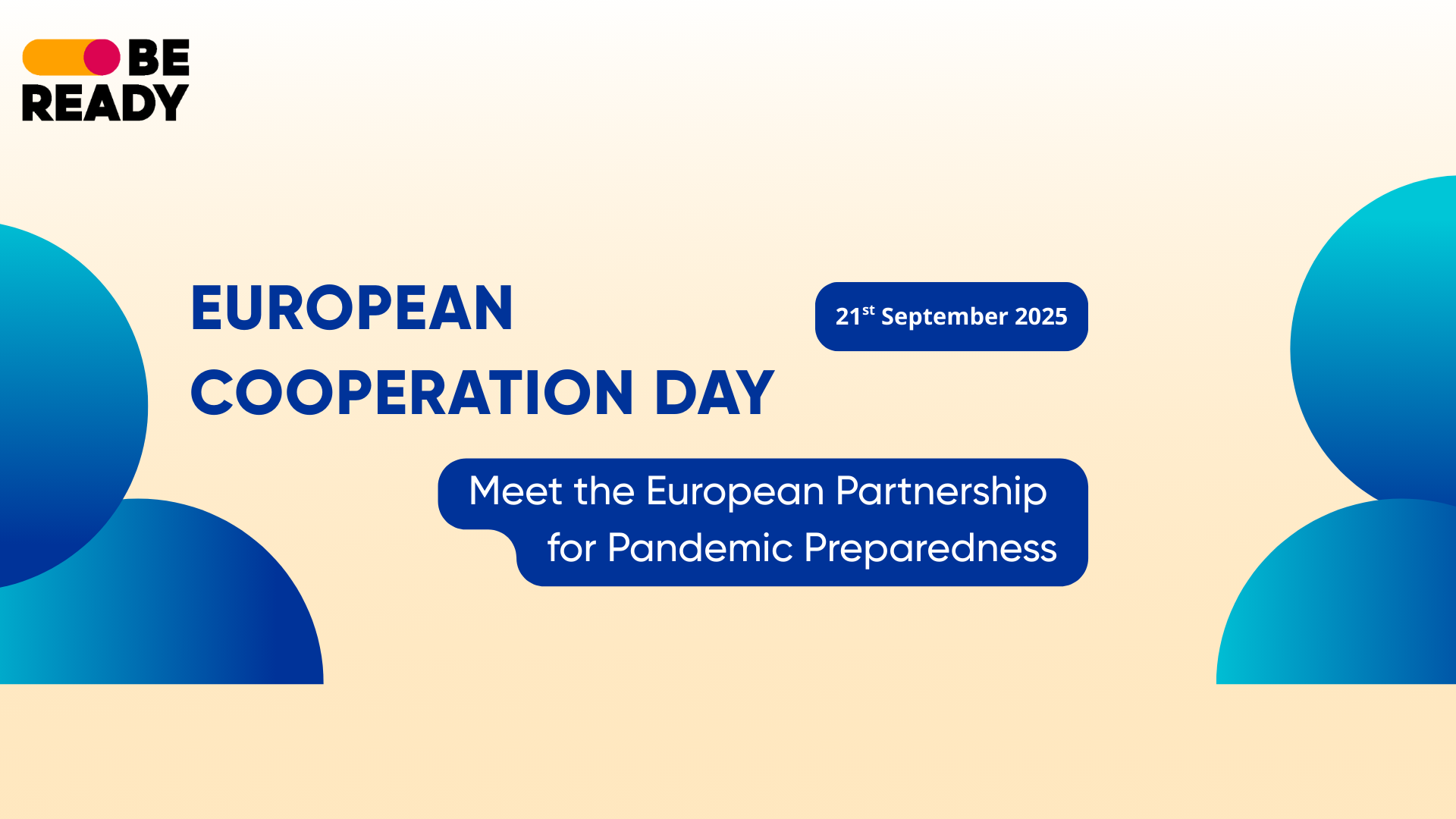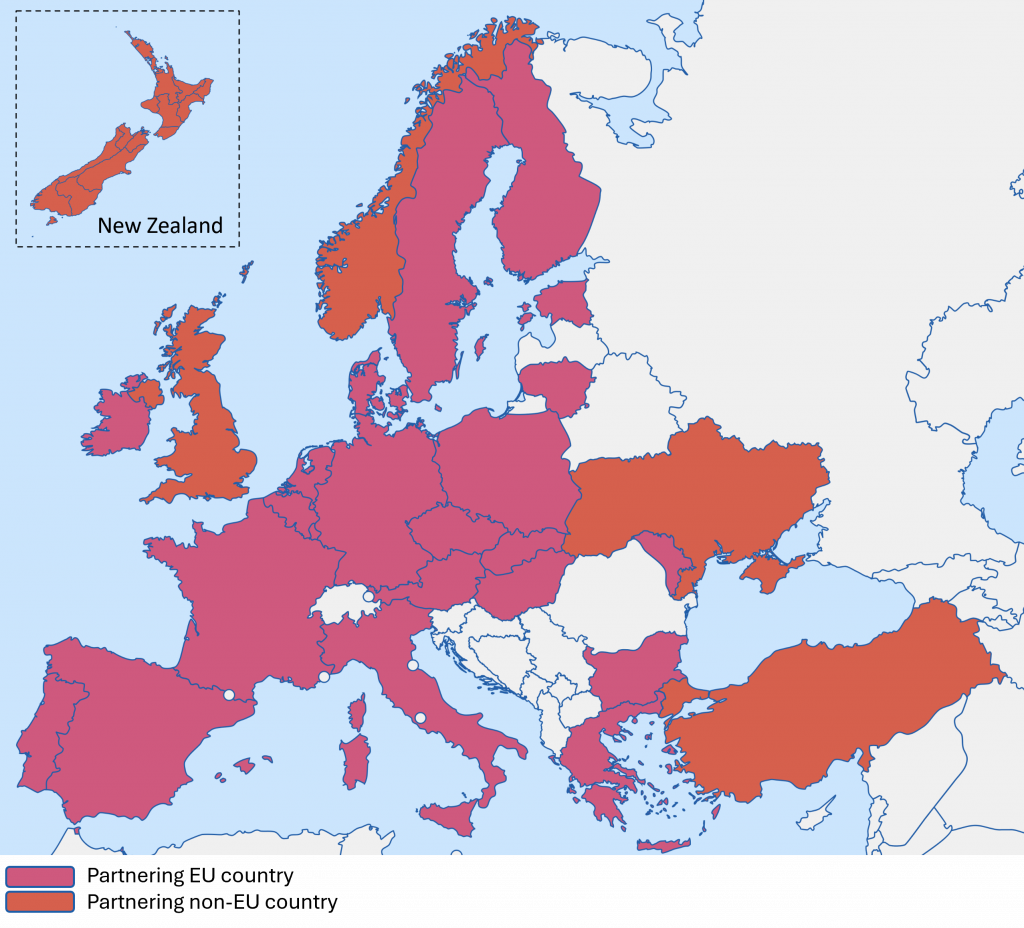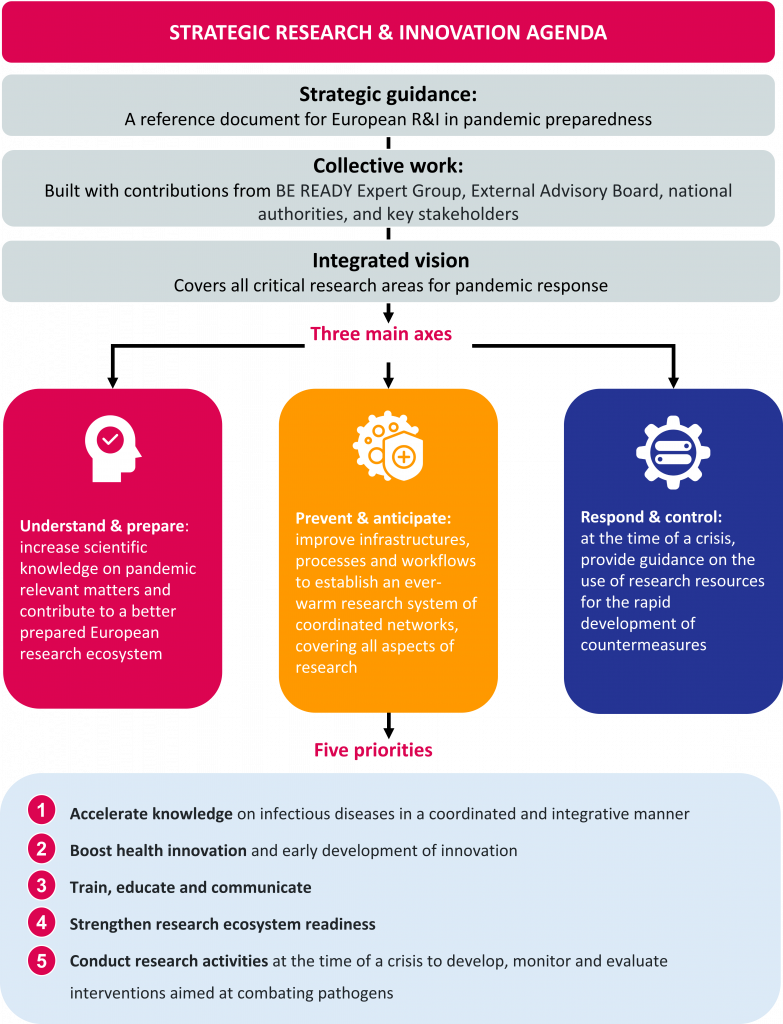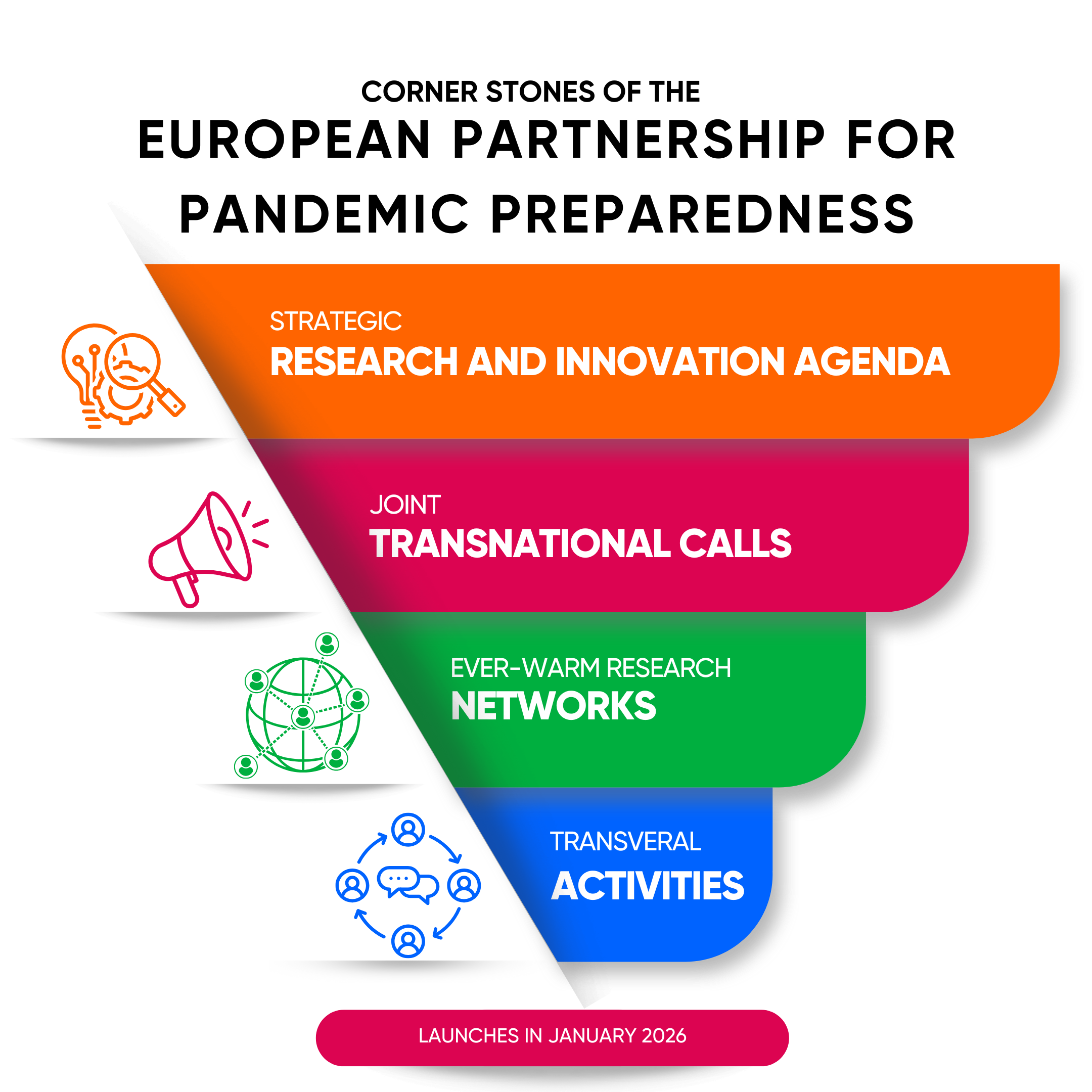What is the European Partnership for Pandemic Preparedness?

What is the European Partnership for Pandemic Preparedness?
Building resilience through cooperation
On 21st September – European Cooperation Day, we want to celebrate the many ways European countries work together to improve our daily lives. A valuable example of such cooperation is the European Partnership for Pandemic Preparedness, which will be launched in January 2026.
Health threats such as infectious disease outbreaks can cross borders within days. Preparing and responding effectively requires more than isolated national plans; in today’s interconnected world we cannot afford to work in silos.

Previous epidemics and pandemics, such as COVID-19, have exposed the significant challenges Europe faces in detecting, controlling, and managing infectious disease outbreaks. The crisis revealed not only a lack of preparedness but also a fragmented research and response landscape. These shortcomings underline the urgent need for stronger coordination and more integrated action at the European level.
The European Partnership for Pandemic Preparedness is created to address these issues. By uniting 81 organisations from 26 countries under one coordinated framework, the Partnership strengthens Europe’s ability to predict, prevent, and respond to future health threats.
The partner institutions and researchers are aligned around the vision of building a European research and innovation ecosystem, that is optimally prepared for future health crises caused by infectious diseases. By pooling expertise and funding, Europe avoids duplication and ensures that the most urgent questions are answered together.
How does this work in practice?
The Partnership will operate in close synergy with the European Commission and its responsible departments[1] as well as with existing sister initiatives related to pandemic preparedness. Together, they will serve as a key enabler of the EU’s Global Health Strategy and ensure better preparedness for future health crises.
At the heart of its activities lies the Strategic Research and Innovation Agenda (SRIA), a guiding document for pandemic preparedness research priorities in Europe. This agenda has been developed through broad consultation with experts and stakeholders and is continuously updated.

Building on this agenda, the Partnership will
- Launch Joint Transnational Calls for research projects, encouraging international teams from different countries to work together on common priorities.
- Strengthen and connect European networks of researchers and infrastructures, so that scientists can work closely together not only during crises but also in normal times.
This way, Europe will maintain an active research community that is always ready—and can react quickly—if a new outbreak occurs. The Partnership also invests in horizontal activities such as data sharing, training, and knowledge transfer, ensuring that preparedness is not only about scientific discovery but also about practical implementation, communication, and long-term resilience. By covering the full spectrum of pandemic research – from basic science and diagnostics to therapeutics, vaccines, public health measures, and social sciences – the Partnership supports the development of an interdisciplinary evidence-base for pandemic management.

Why is this relevant for you?
There is a reasonable probability that another serious pandemic will occur in the future. Factors such as climate change, global travel, and the close connections between human, animal, and environmental health all increase the risk. We already experience this with mosquito-borne diseases moving into new parts of Europe, or when viruses jump from animals to humans, creating so-called ‘spillover’ events.
The European Partnership for Pandemic Preparedness helps to ensure that Europe is not caught unprepared. Whether it is vaccines, treatments, or public health interventions, the aim is to ensure that people everywhere can benefit quickly and equitably when the next threat emerges. You are invited follow the Partnership’s progress and find citizen-friendly resources on our communication channels, where we share updates, materials, and practical guidance on pandemic preparedness. By investing, planning, and preparing together, Europe grows stronger and builds collective resilience.
[1] DG Research and Innovation, the Health and Emergency Preparedness and Response Authority (HERA), DG SANTE
